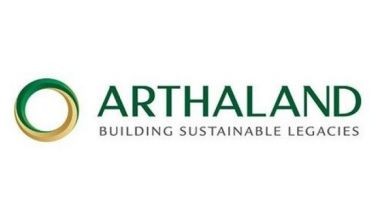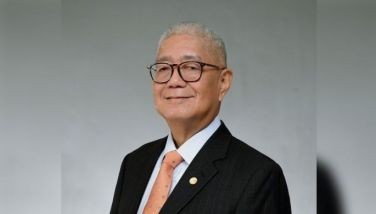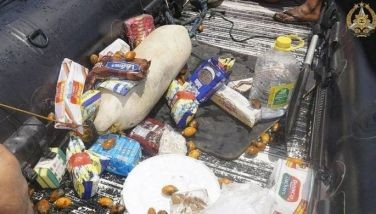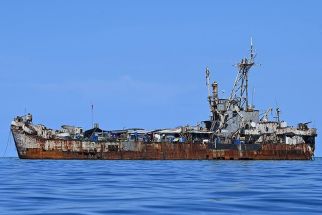FPIC maps out strategy to address health issues from gas leak
MANILA, Philippines - Recognizing the possible ill-effects of the pipeline leak in Barangay Bangkal, Makati City to residents and nearby communities, the First Philippine Industrial Corp. (FPIC) told Sen. Juan Miguel Zubiri that the company has mapped2 out strategies to address health issues arising from the months-old fuel leak problem.
In a letter dated Dec. 28 and sent to the Zubiri’s office during the holiday break, FPIC officer-in-charge Anthony Mabasa said a panel of independent health experts from the University of the Philippines’ College of Public Health is helping establish the integrity of the community health baseline, periodic monitoring and diagnosis of health ailments in the future.
Mabasa said the FPIC has tapped an occupational and environmental health specialist to manage the health risk assessment and develop as well as execute the plan to address any health issues.
Health concerns of the residents were mapped out by a survey group in collaboration with barangay health workers, who conducted household assessments in affected areas in Barangay Bangkal.
For six consecutive Saturdays starting Nov. 13, the FPIC supported and arranged weekly medical missions in Bangkal to address any immediate and chronic health complaints, regardless of origin and nature.
The FPIC is also coordinating with the Makati City government for the opening of a community liaison office and medical clinic at the site this January to “diagnose, treat, and/or refer residents who attribute ailments to hydrocarbon exposure.”
The FPIC also reported that the readings of levels of explosivity (LEL) are taken every day, especially in areas where hydrocarbon extraction is taking place.
The report said LEL readings are normal and therefore the risk of a flash fire is not likely.
“The fact that there is hydrocarbon color, albeit, it’s just a few places in the area, it appears to heighten the perceived risk of health ailment even if the real risks could be way far below threat levels,” Mabasa said in his letter to Zubiri.
Remediation efforts
The FPIC also updated Zubiri’s committee of its “remediation and clean-up efforts” in connection with the pipeline leak in Barangay Bangkal.
Mabasa said the Department of Energy (DOE) engaged the University of the Philippines’ Institute of Geological Sciences (UP NIGS) headed by Dr. Carlos Arcilla, to supervise the installation of 76 test wells in pre-identified high-density and critical areas along the pipeline route - Manila, Makati, Parañaque, Muntinlupa, San Pedro, Biñan and Calamba.
These tests were completed on Dec.13, 2010. UP NIGS reported that all tests were negative for petroleum indications.
SGS International, the independent third party engaged by the DOE, is currently reviewing FPIC’s repair procedures, third-party inspection results, pressurization procedures and various aspects of FPIC’s operations and maintenance.
SGS International recommended a pressurization test that requires the elimination of gaps or “bubbles” inside the pipe, and thus, a 24-hour long pump operation will have to be undertaken.
The DOE directed the FPIC to make appropriate representations with the Supreme Court, lest the procedure be viewed as a violation of the order to stop operations pursuant to the writ of kalikasan issued by the tribunal last Nov. 19.
According to FPIC, the first phase of environmental site assessment involves the delineation of hydrocarbon plume, footprint and product concentration.
The FPIC has tapped CH2Mhill Philippines Inc., which has initiated mapping or assessment of the affected area to characterize the size of the plume caused by the leak.
The second phase of the environmental site assessment will entail the installation of monitoring wells within the Bangkal community.
The wells will be gauged to determine the depth to the groundwater and the presence and thickness of the petroleum hydrocarbon.
Samples from the wells will be sent to a laboratory to determine the concentration of petroleum constituents.
The last phase involves the design, construction and implementation of the appropriate remediation methodology based on the findings of the previous phases.
Mabasa said the FPIC had initiated talks with the officers of the West Tower Condominium Association and presented its proposed mediation and clean-up strategy since Nov. 25 but the company was only allowed full access to the West Tower basement last Dec. 23.
To address complaints on fumes and odor emanating from West Tower, large blowers are to be installed to de-gas the basements.
“Despite the limitations and restrictions imposed by West Tower on FPIC, the FPIC nevertheless offered a package of engineering interventions to address the complaint on fumes from the nearby community,” Mabasa said.
The FPIC reiterated its social responsibility to remediate and clean up the areas contaminated by the petroleum leak even as it welcomed any government assistance to further improve its strategies.
- Latest
- Trending






























